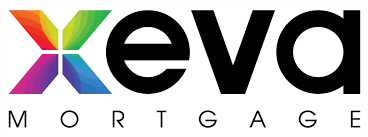Why Moving to Vancouver Island Is Worth the Effort
If you’ve ever considered making the move to Vancouver Island, there are endless benefits. I speak from first-hand experience, since I moved from the mainland to Nanaimo with my family seeking an enhanced quality of life with a more affordable cost of living.
Vancouver Island is known for its stunning scenery, relaxed pace of life and welcoming communities – qualities that make it a sought-after destination. But did you know that even if you’re still commuting to the mainland for work, moving to Vancouver Island can offer a range of perks, including the following?
- Stunning Natural Beauty and Peaceful Surroundings
One of the most obvious bonuses is the beauty of the island. Surrounded by ocean, lush forests and majestic mountains, Vancouver Island offers unmatched outdoor opportunities, including beaches, forests, parks, trails, ocean sports, skiing, etc. Whether you're into hiking, kayaking or simply enjoying the tranquility of nature, it’s truly hard to beat the views and calm environment that island living offers. After a long day of work, returning to this serene atmosphere is an absolute treat. - Affordable Housing
Real estate prices on the mainland, especially in Vancouver, have increased significantly in recent years. Vancouver Island offers more affordable housing options, from cozy cottages to larger homes with space to spare. Even with the added cost of commuting, many find that they can own their dream home on the island while still working in Vancouver. - Work-Life Balance
With options like ferries or quick flights, you can still maintain your mainland job while enjoying the benefits of island living, leading to an ideal work-life balance. Many commuters appreciate the ability to escape to the island’s calm atmosphere after the busy workweek. - Stronger Sense of Community
Island life tends to foster a strong sense of community. Smaller towns and neighbourhoods often have close-knit vibes, where people know each other and enjoy a slower, more relaxed pace. It’s a great place to raise a family or retire, and many find it easier to build meaningful connections compared to the hustle of Vancouver.
If you already own a home, there are several considerations to make when planning to purchase property on the island. Do you need to align the sale with the new purchase? Do you have the option to port an existing mortgage and, if so, how do you plan for this? These are just a couple questions I’ll go through with you before you decide to buy a property.
It’s also essential to connect with an island realtor as soon as you’ve been prequalified for financing. Having clear and open communication with a local real estate professional is extremely important, since you won’t always have the opportunity to be present. You can look to them for relevant information regarding the property, the city and its communities.
If you plan to build a new home or renovate an existing property to suit your needs, there are various factors that influence your decision. In my own experience, location and budget were the driving forces. Here are some other things to note:
- Take your time to find a reputable builder
- You may opt to use an interior designer from Vancouver, or your local municipality, to partner with the selected builder, which can simplify the work you’ll need to put into your project
- Inspectors and engineers – engage these professionals early on when planning construction or a major renovation
It’s my pleasure to help make your move to the island as seamless as possible: 604-788-8693 | tanya@tanyatoye.ca




